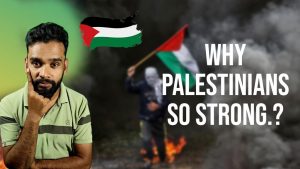In the midst of the relentless sounds of bombardment in Palestine, a profound and unyielding faith is evident among the people enduring unimaginable hardships. Social media platforms bear witness to extraordinary examples of submission to God, challenging the world’s understanding of courage and resilience.

Despite the constant threat of danger, the Palestinians exhibit a courage that surpasses comprehension. Their unwavering commitment to their homes and places of worship, even amid the imminent risk of bombings, is a testament to their unshakeable faith. The key to their strength lies in their belief in a religion where death in the path of Allah is not considered the end but a transition to a higher realm – martyrdom.
In heart breaking scenes shared on social media, individuals calmly announce the martyrdom of their loved ones, including children and spouses. The author draws parallels with the trials faced by Prophet Muhammad (saw), emphasizing his endurance and submission even in the face of personal tragedies, such as the loss of his son Ibrahim.
The narrative delves into the cry for justice, questioning the seemingly comfortable lives of oppressors and the agonizing suffering of the oppressed. The author contends that worldly punishments are insufficient for such colossal crimes, and true justice will be served in the severe fires of hell on the Day of Judgment.
The text reflects on the Creator’s intricate provision for the smallest needs of creatures and suggests a profound belief that He will full fill the greatest needs, including those for eternity and perfect justice. The Palestinians’ faith is portrayed as genuine, free from assumptions or wishful thinking, rooted in the principles outlined in the Quran and the life of Prophet Muhammad (saw).
The piece concludes with a poignant reflection on the stark dichotomy between the risk many individuals face regarding their spiritual well-being, contrasting with the contentment and faith demonstrated by the people of Gaza. It challenges readers to question who is truly free and who is in greater need of help – those in the open-air prison of Gaza or those in more privileged circumstances.


